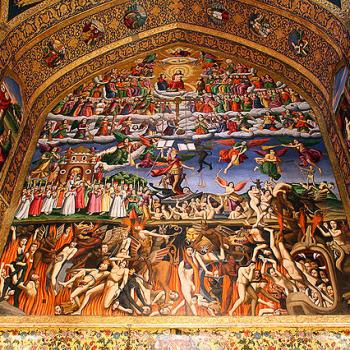Third, I would argue that this is one of the weaknesses of interfaith approaches, and that an important dimension is missing that would strengthen his worthwhile interfaith activities among America's youth. There are many interfaith organizations and approaches to bringing adherents of various religious traditions together. Many come from the more progressive end of the spectrum, and they advocate a downplaying or ignoring of contradictory and competing religious truth claims. As Stephen Prothero has noted in his book God Is Not One, this way of working toward the resolution of religious conflict can be a huge problem:
The Age of Enlightenment in the eighteenth century popularized the ideal of religious tolerance, and we are all doubtless better for it. But the idea of religious unity is wishful thinking nonetheless, and it has not made the world a safer place. In fact, this naïve theological groupthink—call it Godthink—has made the world more dangerous.
I understand the rationale in avoiding the discussion of religious differences. Conversations on such things usually end up in conflict, and at times, even violence. But the relegation of our religious claims to the private sphere, and the refusal to explore religious differences ends up being the elephant in the room. And for this reason many conservative religious people, particularly Evangelicals, aren't interested in interfaith dialogue. They are concerned about the watering down of their religious convictions. Perhaps our differences and what divides us are more important that our similarities as the foundation for what unites us.
But a different approach is possible. In contrast with interfaith, I advocate and practice religious diplomacy. This approach puts religious or ideological differences at the forefront, and works to develop relationships and conversations through a process of peaceful contestation that results in individuals in the process coming to see each other as trustworthy opponents. As the website for the Foundation for Religious Diplomacy describes it, "We envision an increase of trust between ethical advocates of conflicting worldviews that learn to live together in peaceful tension—contesting their differences in good faith, and collaborating often in humanitarian projects."
Interfaith approaches are different than religious diplomacy. A growing group of people across a religious and ideological spectrum can be found who have concerns about the former, while recognizing the value of the latter.
One of the strong points of Patel's Sacred Ground was his discussion of how he solicited critical feedback from one of his board members about his organization's approach. In a spirit of admiration, cooperation, and a mutual desire to prepare America's youth for more positive ways of interreligious engagement, I hope Patel will consider the benefits of discussing religious truth claims, and in particular, religious difference. I think it would strengthen his important work.
Mr. Patel, can we dialogue about dialogue?




